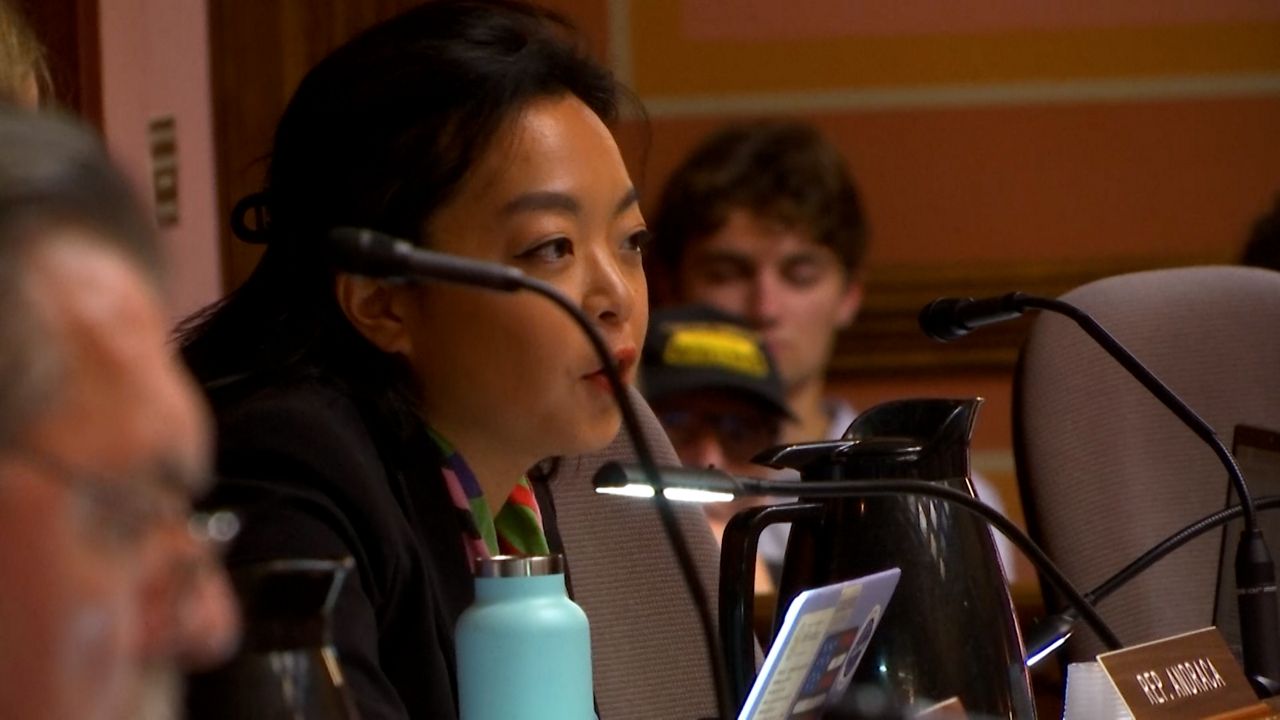MADISON, Wis. — Many parts of the state Capitol were standing room only Wednesday as three different hearing rooms were packed with people waiting to weigh in on several pieces of legislation focused on transgender and nonbinary youth.
Three Assembly bills, brought forth by Republicans who control the Legislature, were up for public discussion despite facing a looming veto from Democratic Gov. Tony Evers if the measures reach his desk.
Republicans spoke in support of a pair of bills first introduced in 2021 that would ban transgender athletes from playing in girls’ and women’s sports at both the K-12 and collegiate levels.
“This will ensure that all athletes have equal access to athletic opportunities and fair recognition based on their talents and efforts,” State Sen. Daniel Knodl, R-Germantown, said.
Meanwhile, Sam Grover spoke in opposition to the bills on behalf of the Civil Rights and Liberties section of the State Bar of Wisconsin.
“A lawsuit of this kind could bankrupt a private school,’’ Grover explained to lawmakers. “The Civil Rights and Liberty Section is saying that this bill, in particular, is unconstitutional and would invite such lawsuits.”

Under the proposed bills, there would be three categories of athletic teams: male, female and co-ed; students could only play on the one that matches their sex assigned at birth by a physician.
The Wisconsin Interscholastic Athletic Association (WIAA) has had a transgender athlete policy in place since 2015.
“This policy has been professionally developed over time, has worked in practice, receives regular review, and has the support of the member schools,” WIAA Communications Director Todd Clark said in a statement.
Though the WIAA said it remains open to discussing how to improve policies, the private, not-for-profit organization does not support legislation that circumvents their membership process.
“We need to wake up. When a female basketball is smaller than a male basketball, we should be foolish to think that hormone treatment or surgery can change the advantage of an individual’s hand size,” State Rep. Barbara Dittrich, R-Oconomowoc, told her colleagues.
Later in the afternoon, the conversation turned to banning that type of gender-affirming care for minors.
The so-called "Help Not Harm Act" would prohibit sterilization surgeries, mastectomies, hormones and puberty blockers for people under the age of 18.
“There are always more than two options, but stopping normal puberty, administering wrong sex hormones and removing healthy body parts should never been an option for anyone,” Jeannette Cooper with Partners for Ethical Care said in support of the bill.
While those in favor of the measure said it is meant to stop harm, those opposing the bill argued harm can come from just having the conversation.
“Bills like this manufactures a moral panic around trans youth,” Jon McCray Jones, a policy analyst for ACLU Wisconsin explained. “The rhetoric you use today, fear mongering around gender-affirming care, doesn’t stay in these walls, but spreads to dinner tables, school boards and online chat rooms.”



